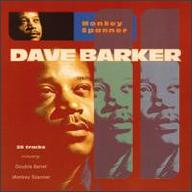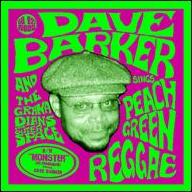Crooks was next briefly a member of the Techniques, replacing Pat Kelly, who had in turn replaced Slim Smith, in the legendary trio, recording a pair of songs with remaining members Winston Riley and Bruce Ruffin. David Crooks became Dave Barker after working with producer Lee Scratch Perry in 1969 (Perry felt the name David Crooks just didn't have the right ring to it), sessions that produced the classic tracks Prisoner of Love, Set Me Free (and its more famous version, Shocks of Mighty), and Lockjaw. An album of Barker's Perry-produced material was released in 1970 as Prisoner of Love.
Although Barker had a sweet, high tenor, and was a gifted and soulful singer, Perry encouraged the DJ side of him, and Barker's American-styled radio DJ interjections have arguably brought him more attention than his singing. It was as a DJ voice that Winston Riley brought Barker in on a project he was recording with veteran session organist Ansel Collins, and the result was 1971's wacky and infectious single Double Barrel, which ended up topping the charts in the U.K. (and just missed the Top 20 in the United States) that same year. The duo, performing as Dave Ansel Collins, followed it up with the almost as successful Monkey Spanner single, and a delightful album, known variously as Double Barrel and Heavy Heavy Monsters Sound of Dave Ansel Collins, was released and remains a classic, genre-bending bit of rocksteady craziness.
Barker and Collins toured Britain extensively behind the album and its two big singles, and Barker chose to relocate to London, where he continues to make his home. Although he will probably always be most remembered for his DJ work from the Double Barrel era, Barker was also a fine singer, and his more straightforward vocal tracks should not be overlooked. Trojan released Monkey Spanner on CD in 1997, a 26-track collection that brings together a selection of his work from the late '60s and early '70s, and includes generous examples of both his DJ and singing styles. ~ Steve Leggett, Rovi













